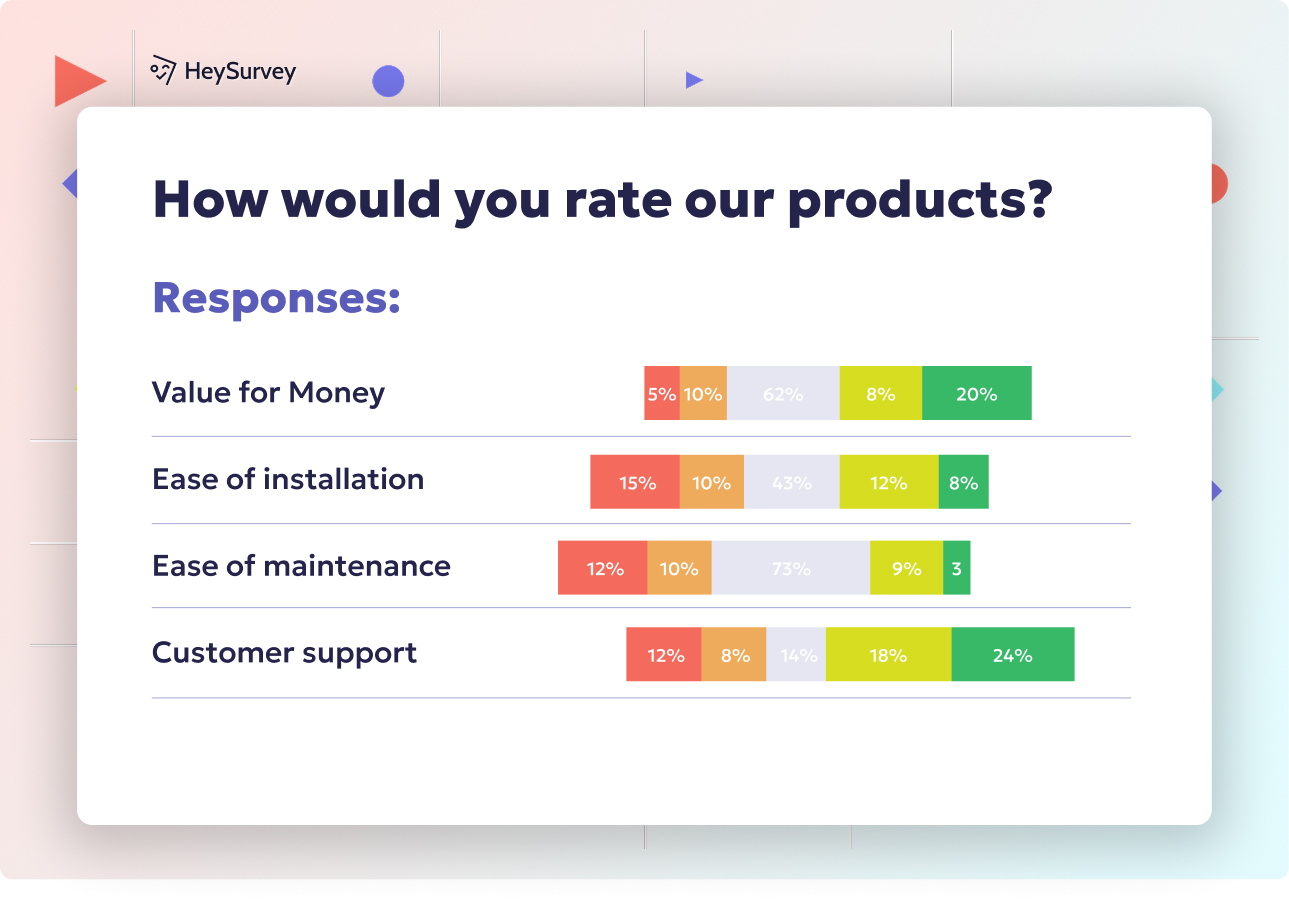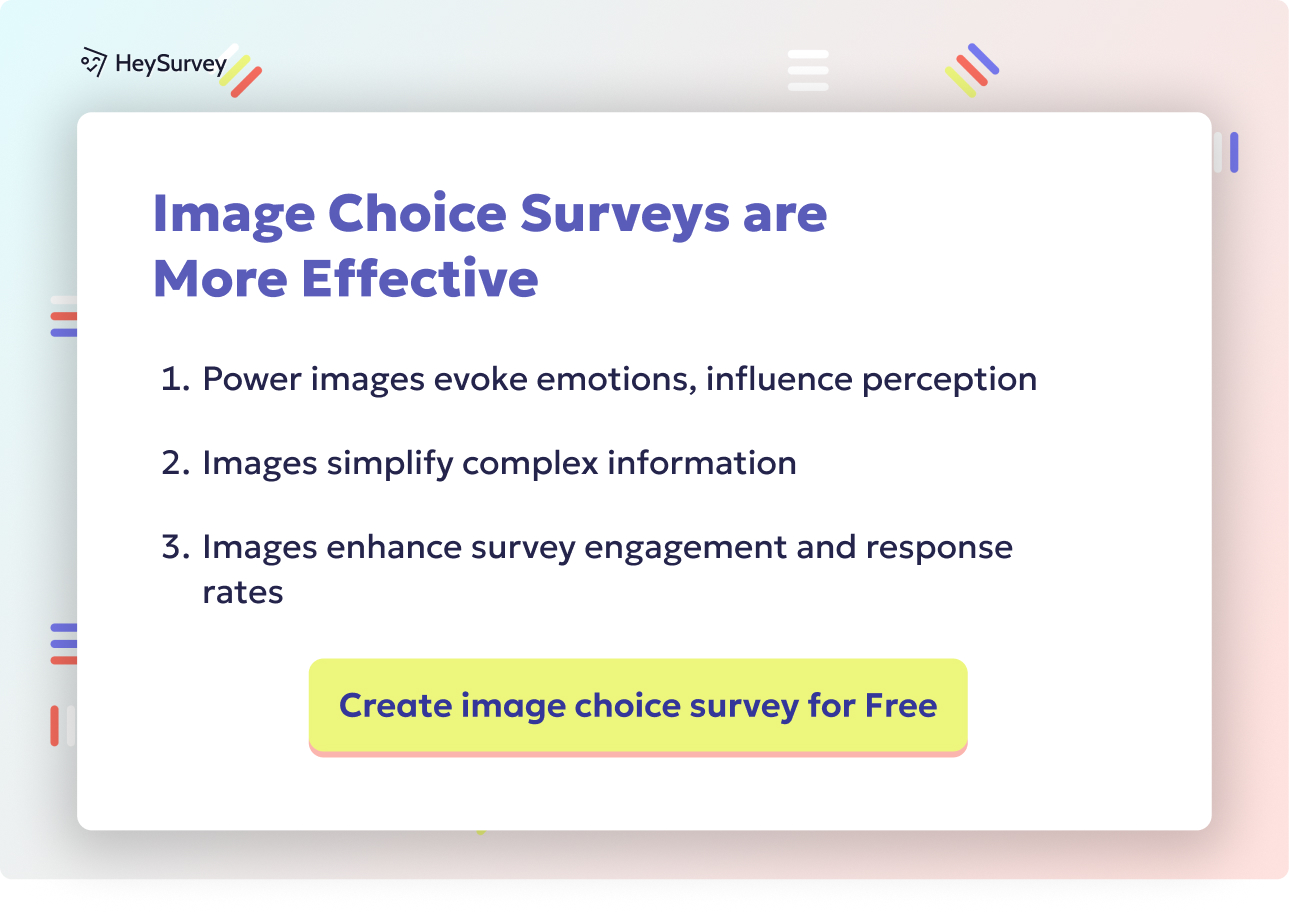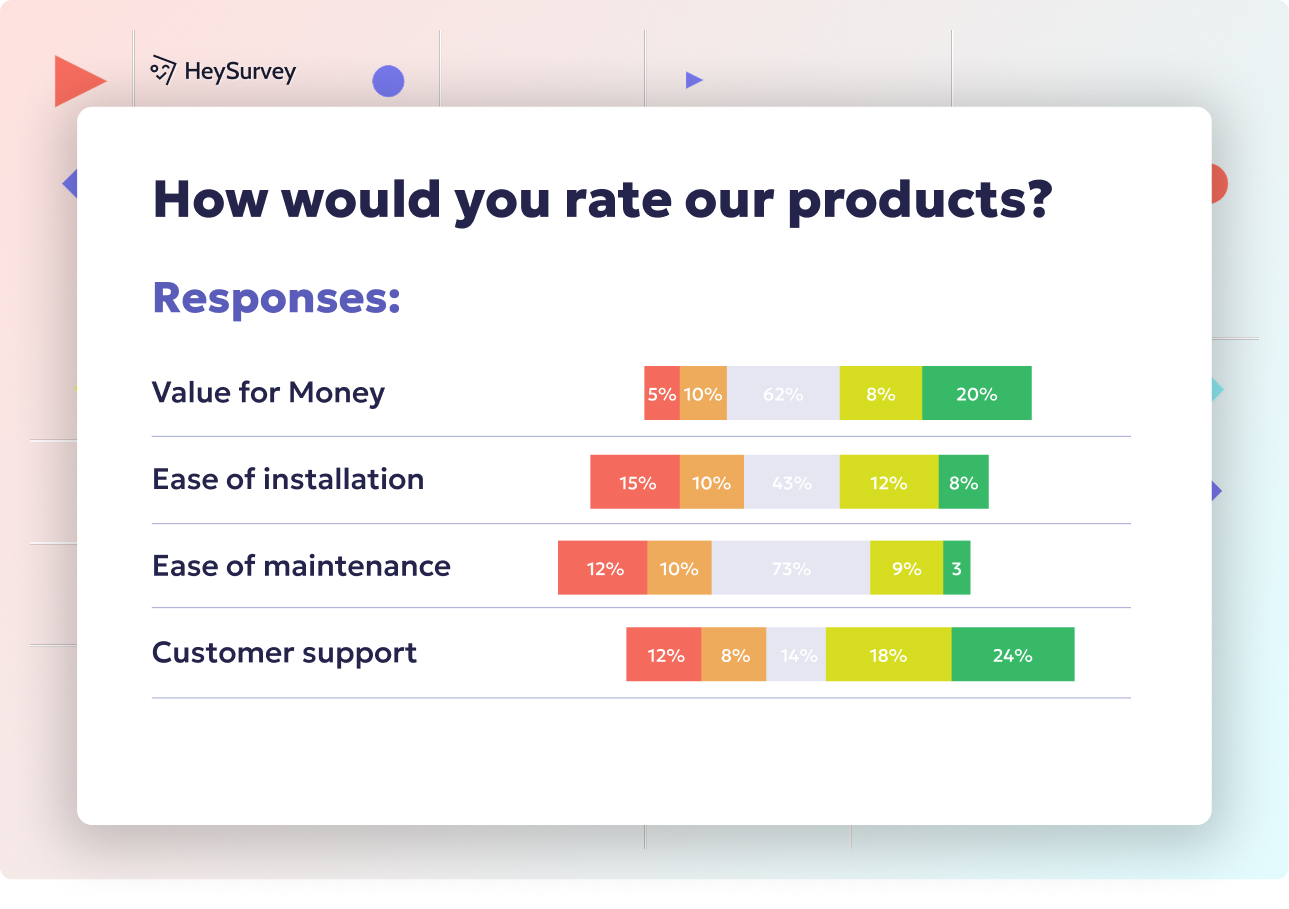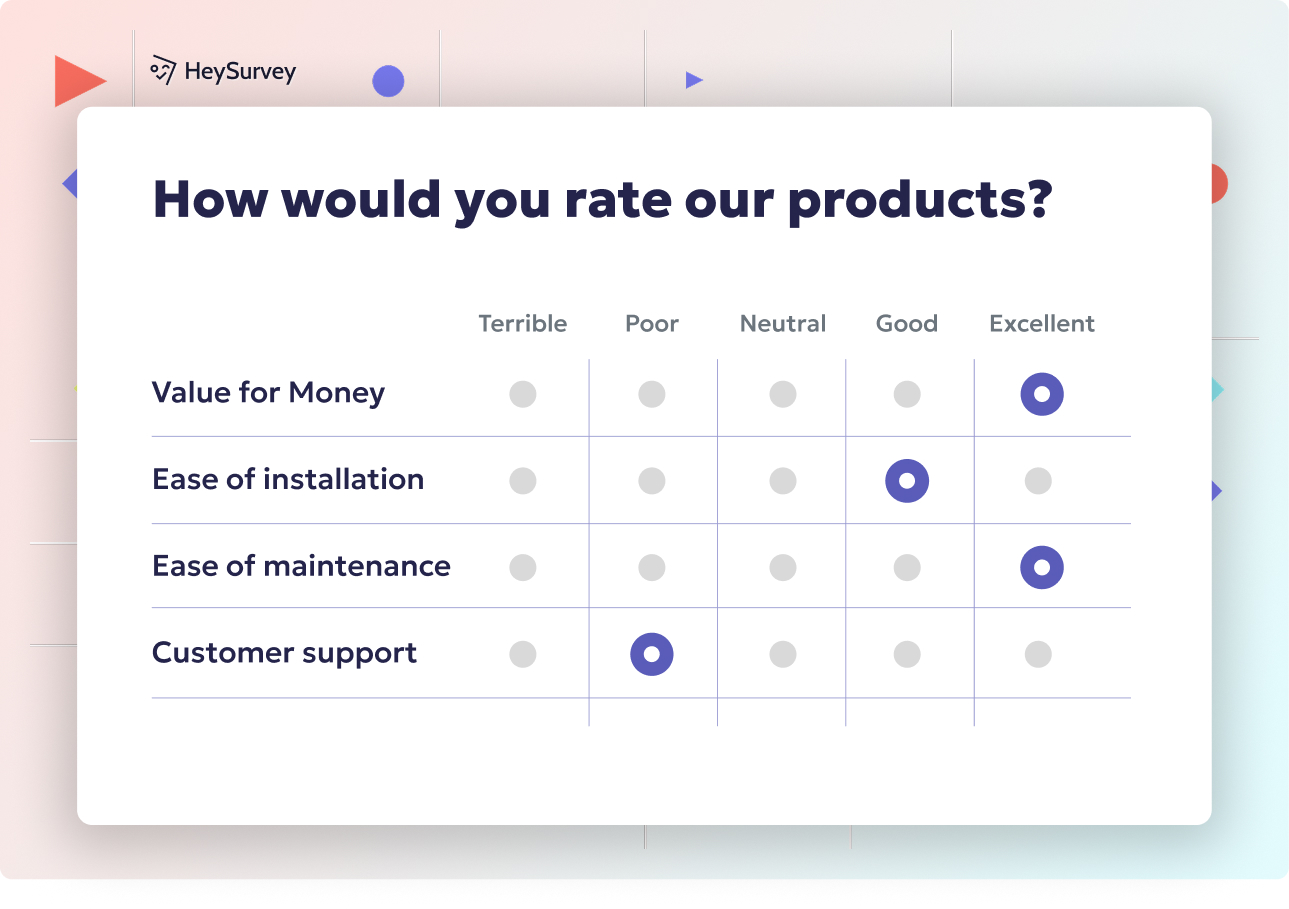29 Religion Survey Questions Sample – Ultimate Guide for Insight
Explore 25+ religion survey questions sample for accurate, respectful faith-based data across affiliations, beliefs, practices, and more.
Understanding how faith shapes our world is more than a curiosity—it’s a game-changer for everything from school policy to the products we buy. In workplaces, schools, politics, or nonprofit outreach, religion survey questions are popping up like never before. Legal and ethical matters shine a spotlight on anonymity and voluntary participation, reminding us that sensitivity rules the day. From religious affiliation to moral values, we’ll walk you through seven game-changing survey types, offering truly actionable sample religion questionnaire examples you can use right away. Prepare for not just practical tips, but faith-based survey superpowers.
Religious Affiliation Survey
Why & When to Use
Understanding which religious groups make up your community is like getting a map to guide your programming. Knowing the faith composition can help you plan events, comply with rules, or just make everyone feel at home. Onboarding new employees, prepping for large multi-faith gatherings, even city census studies—these are the perfect times for a quick check-in.
Organizations everywhere use the religious affiliation poll to:
- Inform policy design, especially for schools and public offices.
- Plan for holidays, food, and prayer spaces to be inclusive.
- Foster better community engagement when reaching out or running programs.
If you want to make sure you’re not serving ham at a Passover dinner, this data is gold.
5+ Sample Questions
Which of the following best describes your current religious affiliation? (List options—Christian, Muslim, Jewish, Hindu, Buddhist, Sikh, None, Prefer not to say, Other)
Have you changed your religious affiliation in the past five years?
If you selected "Other," please specify your religious group.
How important is your religious affiliation to your personal identity? (Scale of 1-5)
Do you actively participate in a congregation or house of worship? (Yes/No)
Would you be interested in resources or groups affiliated with your religion? (Yes/No/Maybe)
When designing these questions, respecting every individual’s privacy is key.
Pretesting survey questions through expert reviews, cognitive interviewing, and pilot testing is essential to ensure clarity and validity in religious affiliation surveys. (journals.lww.com)

How to Create a Religion Survey with HeySurvey in 3 Easy Steps
Crafting a religion survey might sound daunting, but HeySurvey makes it simple—even if you’re new to the platform. Ready to start? Here’s your quick guide to building, customizing, and launching a respectful and insightful faith-based survey.
Step 1. Create a New Survey
- Log into HeySurvey or jump right in without an account to start building your survey.
- Choose “Create New Survey” from the dashboard.
- Pick either an empty sheet if you want total freedom, or start from one of the pre-built templates (like a religion survey template, if available) to save time.
- Give your survey a name that helps you recognize it later, such as “Religious Affiliation Poll 2024.”
Once created, you’ll enter the Survey Editor, where you can start shaping your questionnaire.
Step 2. Add Your Religion Survey Questions
- Click the “Add Question” button at the top or between existing questions.
- Select question types that fit your needs—Choice for multiple options like religious affiliations, Scale for intensity or importance ratings, or Text for open-ended answers.
- Enter your questions drawn from the sample religion questionnaire examples (like “Which of the following best describes your current religious affiliation?”).
- For choice questions, input all relevant options and don’t forget to include “None,” “Prefer not to say,” and an “Other” write-in choice.
- Mark questions as required only when necessary to respect respondents’ privacy and voluntary participation.
- Arrange your questions logically for a smooth flow—from general affiliation to more detailed surveys on beliefs, practices, or attitudes.
You can also add images, descriptions, or use markdown formatting to make your questions clear and engaging.
Step 3. Publish Your Survey
- When your questions are set, hit Preview to see exactly how your survey will look to respondents on any device.
- Tweak the design if needed using the Designer Sidebar—change colors, fonts, or animation to make it inviting but respectful.
- Once you’re happy, click Publish. Note that publishing requires registering or logging in, so you can track responses.
- Copy the unique survey link to share with your audience, embed it on your website, or send it directly by email or social media.
Bonus Step 1: Apply Branding and Customize Appearance
- Upload your organization or project logo to the top left of your survey—this boosts trust and recognition.
- Access the Designer Sidebar to adjust background images, font styles, and colors aligning with your mission or event theme.
- Customize question cards’ style and choose between “one question per page” or multiple questions on a single page for your preferred pacing.
Bonus Step 2: Define Settings and Privacy Options
- Open the Settings Panel to set start and end dates for your survey availability—perfect for time-limited studies or events.
- Add a response limit if you only want a certain sample size.
- Define a Redirect URL to thank participants or direct them to further resources after survey completion.
- Enable or disable options like allowing respondents to view aggregated results, ensuring transparency and engagement.
Bonus Step 3: Use Branching for Tailored Survey Paths
- Apply branching logic so respondents only see questions relevant to their answers. For example, those who say “No” to religious affiliation might skip belief intensity questions.
- Customize endings depending on survey paths, adding personalized messages or instructions.
- Branching makes your survey efficient, respectful, and much less tiring to complete.
Press the button below to jump straight into a sample religion survey template and start customizing it for your unique goals!
With these few simple steps and bonus tips, you can confidently build a faith-based survey that respects your participants and collects accurate, actionable data—all thanks to HeySurvey’s intuitive platform.
Religious Belief & Faith Intensity Survey
Why & When to Use
The goal here is to understand not just what people believe, but how deeply they hold those beliefs. This helps tailor everything from supportive messaging to research studies on shifting faith trends. After someone joins a new faith, or if you’re digging into how beliefs change over time, faith-based survey questions like these can open new doors.
Organizations find these questions handy for:
- Enhancing chaplaincy and pastoral care services tailored to belief intensity.
- Segmenting audiences in religious marketing campaigns.
- Supporting academic research and longitudinal studies on faith.
This survey type reveals whether beliefs are felt deep in the bones or on the surface.
5+ Sample Questions
On a scale of 1-7, how certain are you that God or a higher power exists?
How frequently do you think about spiritual matters?
Which statement best reflects your view of sacred texts? (Literal, Inspired, Symbolic, Unsure)
Have your core religious beliefs changed in the last year?
How comfortable are you discussing your faith with others? (Very comfortable, Somewhat comfortable, Not at all)
Do you feel your belief system influences your daily decisions?
The intensity of faith varies widely, and these sample religion questionnaire items handle the gradient with finesse.
A 2024 study found that 39% of Gen Z women identify as religiously unaffiliated, compared to 31% of Gen Z men. (axios.com)
Religious Practices & Rituals Survey
Why & When to Use
Asking about religious practices and rituals helps organizations make space—sometimes literally—for beliefs in action. These questions are your ticket to smartly planning schedules around fasting holidays, organizing prayer room availability, or respecting specific dietary needs.
HR professionals, health providers, and event organizers use these to:
- Time meetings around major religious holidays or fasting practices.
- Understand prayer room demand, so supply matches real need.
- Respect unique dietary laws that could be medically or spiritually significant.
The right data can prevent a scheduling faux pas or lunchtime dilemma.
5+ Sample Questions
How often do you attend religious services?
Do you observe specific dietary laws? (Yes always, Sometimes, No)
How regularly do you pray or meditate?
Which religious holidays do you celebrate each year? (Select all that apply)
During which times of day do you prefer to pray or meditate?
Are there any specific accommodations you need for your religious practices?
The ritual rhythms of faith matter, and even simple adjustments can show deep respect.
Interfaith Tolerance & Inclusivity Survey
Why & When to Use
Today’s communities and organizations buzz with people of every faith and none, and measuring interfaith tolerance is crucial for harmony. These surveys are your toolkit for identifying strengths and blind spots in organizational culture, aiming straight at Diversity, Equity, and Inclusion (DEI) success.
They come in handy for:
- Schools seeking to foster a respectful environment.
- Workplaces aiming to tackle subtle exclusion or overt bias.
- Community groups wanting to build bridges between neighbors of different faiths.
Focusing on inclusivity makes working (and living) together a whole lot less awkward.
5+ Sample Questions
How comfortable are you working with people of different faiths?
Agree or Disagree: "My organization respects all religious traditions."
Have you witnessed religious discrimination in the past 12 months?
Would you attend an interfaith event if invited? (Yes, No, Maybe)
Which resources would help you better understand other religions? (Training, Reading materials, Dialogues, None)
Do you feel supported when expressing your beliefs at work or in the community?
Crafting a religious affiliation poll that illuminates inclusivity, not just diversity, is a mark of leadership.
The Gallup Coexist Index 2009 identifies five key statements to assess religious tolerance, including treating people of other faiths with respect and recognizing their positive societal contributions. (academia.edu)
Religious Demographics & Background Survey
Why & When to Use
Combining religious demographics with personal background details creates a multi-dimensional, powerful dataset. The purpose? See how faith intersects with age, place, ethnicity, or upbringing—useful stuff for everyone from marketing teams to sociologists.
These surveys excel when:
- Paired with national census data for deeper insights.
- Used by academic researchers unraveling the ties between religion and demographics.
- Applied in market segmentation to know audiences as more than just a number.
Linking demographic clues to faith identity fuels smarter decisions, not just stats.
5+ Sample Questions
What is your age group? (18–24, 25–34, etc.)
In which country or region were you raised?
What was your childhood religious environment? (Devout, Moderate, Non-religious, Mixed)
What is the primary language used in your religious practice?
Do you currently live in an urban, suburban, or rural area?
Has your religious background influenced your current life choices?
The intersectionality of religion and personal identity bursts into view with this approach.
Attitudes Toward Religion in Public Life Survey
Why & When to Use
Policies on religion can be hot potatoes, so attitudes toward religion in public life deserve closer examination. This survey type digs into views on prayers in school, faith-based charities, and religious symbols—crucial for NGOs, journalists, government, and even the average voter.
Think about needing this survey to:
- Help politicians or journalists tap into public sentiment.
- Shape policies that balance religious freedom and public neutrality.
- Inform advocacy groups and legal teams about the lay of the land.
This is the data that shapes public debate with nuance, not noise.
5+ Sample Questions
Should religious organizations receive tax-exempt status? (Yes, No, Unsure)
Do you support voluntary prayer in public schools?
Agree or Disagree: "Government should stay completely neutral on religious matters."
How much influence should religious leaders have on political decisions? (Scale of influence)
Should businesses be allowed to refuse service based on religious beliefs?
To what extent should religion be taught in public schools?
Uncovering public attitudes helps draw lines that keep everyone comfortable, if not always in agreement.
Religion & Moral Values Survey
Why & When to Use
Religion and moral values go together like peanut butter and jelly—sometimes neatly, sometimes messily. This survey explores how faith informs ethical opinions, charitable actions, and what’s labeled “right” or “wrong.” It’s key for behavioral research, campaigns, or anyone planning interfaith dialogue.
Use this survey for:
- Academic studies examining links between faith and personal values.
- Charitable organizations seeking to understand what inspires giving.
- Marketers who want to connect with customers’ deepest beliefs.
Mapping out moral compasses can open surprising insights into both individual and group behavior.
5+ Sample Questions
To what extent do your moral decisions rely on religious teachings?
Which virtues do you consider most important? (Honesty, Compassion, Justice, etc.)
Agree or Disagree: "One can be moral without being religious."
How often do you donate time or money to charitable causes?
Which moral issues do you link most closely to your faith? (Select all)
Do you look to religious leaders for moral guidance?
Faith and ethics may be lifelong dance partners, but how closely they’re linked varies wildly.
Best Practices: Dos & Don’ts for Crafting Religion Survey Questions
Designing a religion survey is like tiptoeing through a field of tulips—lovely, but best done with care. To guarantee accurately respectful results, let’s explore what truly works (and what definitely doesn’t):
Do:
- Make every question voluntary, always offering “Prefer not to answer.”
- Use neutral, open language that never presumes or judges.
- Pilot-test your faith-based survey with diverse users, watching for awkward phrasing.
- Carefully comply with privacy, GDPR, and all local legal standards.
- Sequence questions logically, from broad (affiliation) to personal (values).
- Keep surveys device-friendly—nobody likes squinting at a tiny screen.
Don’t:
- Force anyone to rank or compare their most sacred beliefs.
- Use words that favor or criticize any particular religion.
- Assume all traditions within a religion are the same across regions or cultures.
- Ignore multiple faith identities or backgrounds in your sample religion questionnaire.
- Risk breaches of anonymity, especially in smaller communities.
For surveys on how to write sensitive religion questions, remember:
- Test, tweak, and test again with real users, expecting surprises.
- Be prepared to contextualize and explain any faith-survey question results to your audience.
Keep length reasonable—aim for 10 to 20 core questions, so you get thoughtful answers without overwhelming anyone. Make sure your religion questionnaire flows logically, ensuring everyone can complete it on their preferred device.
Conclusion & Next Steps: Launching a Respectful, Insight-Driven Religion Survey
You’re now armed with powerful faith survey templates and a bagful of best practices. Cultural sensitivity isn’t just a box to check; it’s the cornerstone of truly useful data. When your survey is ready, pilot, tweak, and analyze—then use those findings responsibly. Share your results with care and always protect participant privacy. Ready to launch the next generation of religion polling best practices? The world is waiting for your respectful, insight-driven religious data analysis.
Related Diversity Survey Surveys

29 Cultural Competence Assessment Survey Questions for Success
Explore 30 cultural competence assessment survey questions across seven types to effectively meas...

31 Religion Survey Questions: Ultimate Guide to Question Types
Explore comprehensive religion survey questions featuring 28 sample items to capture faith identi...

29 Gender Equality Survey Questions to Drive Real Change
Explore 30 insightful gender equality survey questions across workplace, education, marketing, an...

